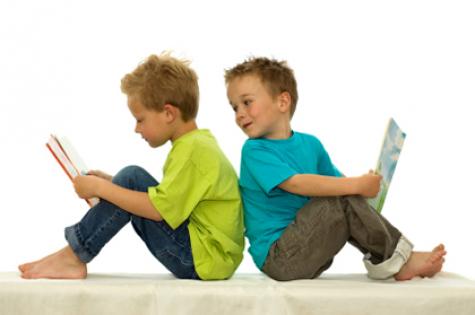A report published by the Melbourne Institute of Applied Economic and Social Research has found that 4-year-olds who are read to every day have better outcomes in literacy and numeracy (including NAPLAN) and also an improvement in a broad range of cognitive skills up to age 9.
These improved outcomes equate to the same effect as being almost 12 months older at 8 or 9 years of age.
"Reading with a child is one of the most valuable early education activities a parent can undertake," according to Sue Roberts, CEO & State Librarian of NSW.
Bestselling children’s book author Andy Griffiths believes reading for pleasure is a powerful way to broaden a child’s experience.
"Helping children to associate reading with pleasure is the surest way to lay down a foundation for a life-long love of books. Being an active reader connects a child with writers, stories and ideas throughout history and in doing so helps them to build empathy with people, groups and cultures who may, on the surface, be quite different from their own. This not only contributes to a richer experience of what it means to be alive, but may be our best hope of world peace."
"If you want an intelligent child, read to them," says another children's author, Jackie French.
"If you want a compassionate child, who can walk in other's footsteps, read to them. If you want a child who can imagine many futures and choose which one will fulfil them, give them many many books, so they can wander among the worlds. If you want to give them the tools to create the future they have chosen, give them books."
5 tips for reading with children at home:
1. Read together at least 10 minutes a day. Set aside reading time without distractions. Turn off the TV.
2. Make reading fun. Be encouraging. Don’t be afraid to be a little silly. Laugh.
3. Always praise your child’s reading and be patient with them.
4. Don’t be too fussy. Read whatever your child enjoys.
5. Let your child see you reading. Let them understand that reading is a normal part of life in your home.



















__small.png)










